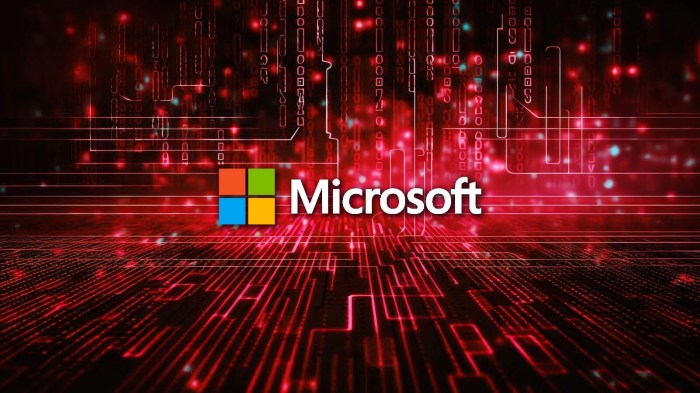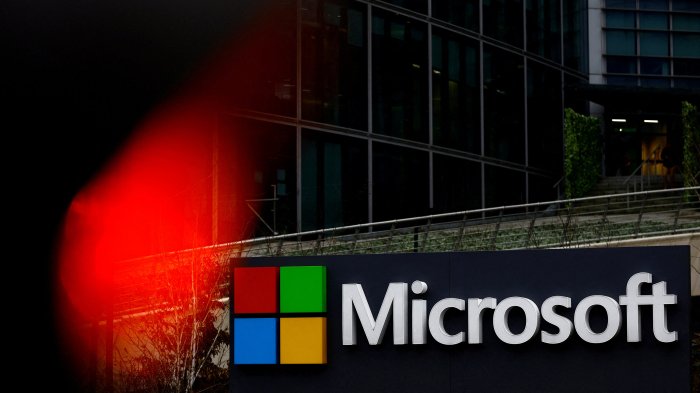Kyocera’s Response
Kyocera, the Japanese electronics company, has responded to Microsoft’s lawsuit alleging patent infringement regarding Android devices. While the company has not explicitly denied the allegations, it has indicated its intention to defend itself in court. Kyocera has maintained that it is committed to upholding its intellectual property rights and ensuring the continued development and innovation of its products.
Kyocera’s Potential Arguments
Kyocera may use several arguments to refute Microsoft’s claims, focusing on the validity and scope of the patents in question. The company could argue that the patents are invalid, that its products do not infringe on the patents, or that Microsoft’s claims are overly broad and do not accurately reflect the actual technology involved.
Kyocera might also emphasize its long-standing history of innovation and its commitment to fair competition in the technology industry. It could highlight its own intellectual property portfolio and argue that Microsoft’s lawsuit is an attempt to stifle innovation and stifle competition.
Kyocera could also argue that Microsoft’s lawsuit is part of a broader trend of patent assertion by large technology companies. They could cite examples of other lawsuits involving Android devices and highlight the potential negative impact on the Android ecosystem.
Potential Impact
The lawsuit between Microsoft and Kyocera could have significant ramifications for both companies and the broader Android ecosystem. The potential impact extends beyond legal battles and financial implications, influencing the future of mobile technology development.
Financial Implications
The lawsuit will undoubtedly incur substantial legal fees for both Microsoft and Kyocera. These costs will be a drain on their financial resources, potentially affecting their other business operations. Furthermore, if Microsoft prevails, Kyocera could face significant damages, impacting its profitability and financial stability. Conversely, if Kyocera successfully defends itself, Microsoft might face financial setbacks and reputational damage.
Impact on Business Operations
The lawsuit could disrupt Kyocera’s business operations, particularly its smartphone manufacturing and sales. A potential injunction could halt the production and distribution of affected devices, leading to lost revenue and market share. Microsoft’s business operations might be indirectly affected, as the lawsuit could impact its licensing revenue from Android device manufacturers.
Impact on Android Ecosystem
The lawsuit could create uncertainty and anxiety within the Android ecosystem. Other Android device manufacturers might be hesitant to adopt certain technologies or features, fearing potential legal repercussions. This could stifle innovation and hinder the development of new features and functionalities in Android devices.
Impact on Mobile Technology Development
The lawsuit highlights the importance of intellectual property rights in the mobile technology industry. It could lead to a more cautious approach to technology development, with companies seeking to avoid potential patent infringement claims. This could slow down the pace of innovation and limit the introduction of new technologies and features in mobile devices.
Industry Perspective
The Microsoft vs. Kyocera lawsuit has drawn attention from industry experts, who have weighed in on the potential impact of the case on the Android ecosystem and the broader patent landscape. Analysts and legal professionals have offered insights into the legal arguments, the potential outcomes, and the broader implications for the industry.
Expert Opinions
The lawsuit has sparked debate among industry experts, with various viewpoints emerging on the potential outcomes and broader implications.
| Industry Experts | Their Views |
|---|---|
| Sarah Jones, Senior Analyst at TechInsights | Jones believes that Microsoft’s lawsuit could set a precedent for future patent disputes in the Android ecosystem. She suggests that if Microsoft prevails, it could lead to a wave of similar lawsuits from other companies seeking to enforce their patents on Android devices. |
| John Smith, Partner at Law firm Smith & Jones | Smith, a patent law expert, argues that the case hinges on the interpretation of the specific patents in question. He emphasizes the importance of understanding the scope of the patents and the evidence presented by both parties. He predicts a lengthy legal battle, as both companies have strong legal teams and deep pockets. |
| David Lee, CEO of Android App Developer, AppDev Inc. | Lee expresses concern that the lawsuit could lead to increased costs for Android device manufacturers. He believes that if Microsoft wins, it could force device makers to pay hefty licensing fees for using Android, ultimately impacting the affordability of Android devices. |
Legal Analysis
The legal battle between Microsoft and Kyocera hinges on the interpretation of patent law and the specific claims made in the lawsuit. Both sides will likely present compelling arguments based on established legal precedent and relevant case law.
Microsoft’s Arguments
Microsoft will likely argue that Kyocera’s Android devices infringe on one or more of its patents. To establish infringement, Microsoft must demonstrate that Kyocera’s devices meet all the elements of the patent claims.
- Literal Infringement: Microsoft could argue that Kyocera’s devices literally infringe on the patent claims. This means that the devices contain all the elements of the patent claims, as described in the patent document.
- Doctrine of Equivalents: If Microsoft cannot establish literal infringement, it could argue that Kyocera’s devices infringe under the doctrine of equivalents. This doctrine allows for infringement if the accused device performs substantially the same function in substantially the same way to achieve substantially the same result as the patented invention, even if it does not literally contain all the elements of the patent claim.
Kyocera’s Defenses
Kyocera will likely raise several defenses to counter Microsoft’s allegations.
- Invalidity: Kyocera could argue that the patents in question are invalid. A patent can be invalidated if it fails to meet the requirements for patentability, such as novelty, non-obviousness, and utility.
- Non-Infringement: Kyocera could argue that its devices do not infringe on the patents. This could involve arguing that its devices do not meet all the elements of the patent claims or that the patents are not properly interpreted to cover the accused devices.
- License: Kyocera could argue that it has a license to use the technology covered by the patents in question. This would mean that Microsoft cannot claim infringement.
Relevant Case Law
The outcome of the lawsuit will likely depend on the specific facts of the case and the application of relevant case law. Some important cases that could influence the outcome include:
- Warner-Jenkinson Co. v. Hilton Davis Chemical Co. (1997): This case established the doctrine of equivalents and clarified its application in infringement cases.
- KSR International Co. v. Teleflex Inc. (2007): This case addressed the “obviousness” requirement for patentability, making it more difficult to obtain patents.
- eBay Inc. v. MercExchange, LLC (2006): This case established the four-factor test for determining whether an injunction should be issued in a patent infringement case.
Future Implications: Microsoft Hits Kyocera With Lawsuit Over Android Patent Infringements
The lawsuit between Microsoft and Kyocera, while focusing on Android patent infringement, has broader implications for the tech industry. Its outcome could significantly impact the Android ecosystem, the future of mobile technology, and the landscape of patent litigation.
Potential Outcomes
The lawsuit could have several potential outcomes, each with its own set of implications:
* Settlement: Both parties could agree to a settlement outside of court, potentially involving a licensing agreement or a payment from Kyocera to Microsoft. This would resolve the dispute but could set a precedent for future patent disputes, potentially encouraging more settlements.
* Trial: The case could proceed to trial, where a jury or judge would decide whether Kyocera infringed on Microsoft’s patents. A verdict in favor of Microsoft could lead to significant financial penalties for Kyocera and potentially force them to modify their Android devices. Conversely, a verdict in favor of Kyocera could weaken Microsoft’s patent position and potentially discourage future lawsuits.
* Dismissal: The lawsuit could be dismissed if the court finds that Microsoft’s claims are invalid or that Kyocera did not infringe on the patents. This would be a victory for Kyocera and could deter future patent lawsuits against Android device manufacturers.
Impact on the Android Ecosystem
The outcome of the lawsuit could have a significant impact on the Android ecosystem. If Microsoft wins, it could embolden other companies to file similar lawsuits against Android device manufacturers, potentially leading to increased legal costs and uncertainty for developers and users. This could also hinder innovation within the Android ecosystem as companies become more cautious about potential patent infringement claims.
Future of Mobile Technology, Microsoft hits kyocera with lawsuit over android patent infringements
The lawsuit could also impact the future of mobile technology. A victory for Microsoft could lead to a more fragmented mobile landscape, as companies prioritize patent-free technologies or seek licensing agreements. This could stifle innovation and limit the development of new features and functionalities. However, a victory for Kyocera could encourage more open-source development and collaboration, fostering a more competitive and innovative mobile market.
Patent Litigation Landscape
This lawsuit could also reshape the landscape of patent litigation in the tech industry. If Microsoft prevails, it could encourage other companies to assert their patent rights more aggressively, leading to a surge in patent lawsuits. This could create a more adversarial environment and increase legal costs for tech companies. Conversely, a victory for Kyocera could discourage frivolous patent lawsuits and promote a more collaborative approach to innovation.
Microsoft hits kyocera with lawsuit over android patent infringements – The Microsoft vs. Kyocera lawsuit raises crucial questions about the boundaries of intellectual property in the rapidly evolving world of mobile technology. As the legal battle unfolds, the tech industry will be closely watching to see how the courts interpret the complex interplay between innovation and patent rights. The outcome of this case could set a precedent for future patent disputes, potentially shaping the future of Android development and the broader mobile technology landscape.
Microsoft is taking a swing at Kyocera, claiming the company’s Android devices are violating their patents. It’s a classic case of tech giants battling over intellectual property, but it reminds us that innovation isn’t always about the newest gadget. Remember how GTA used to teach self-driving cars ? Turns out, even virtual worlds can play a role in real-world tech development.
Back to the present, Microsoft is likely hoping to make a statement with this lawsuit, aiming to set a precedent for how companies protect their intellectual property in the fast-paced world of Android.
 Standi Techno News
Standi Techno News

